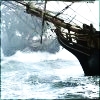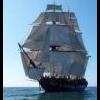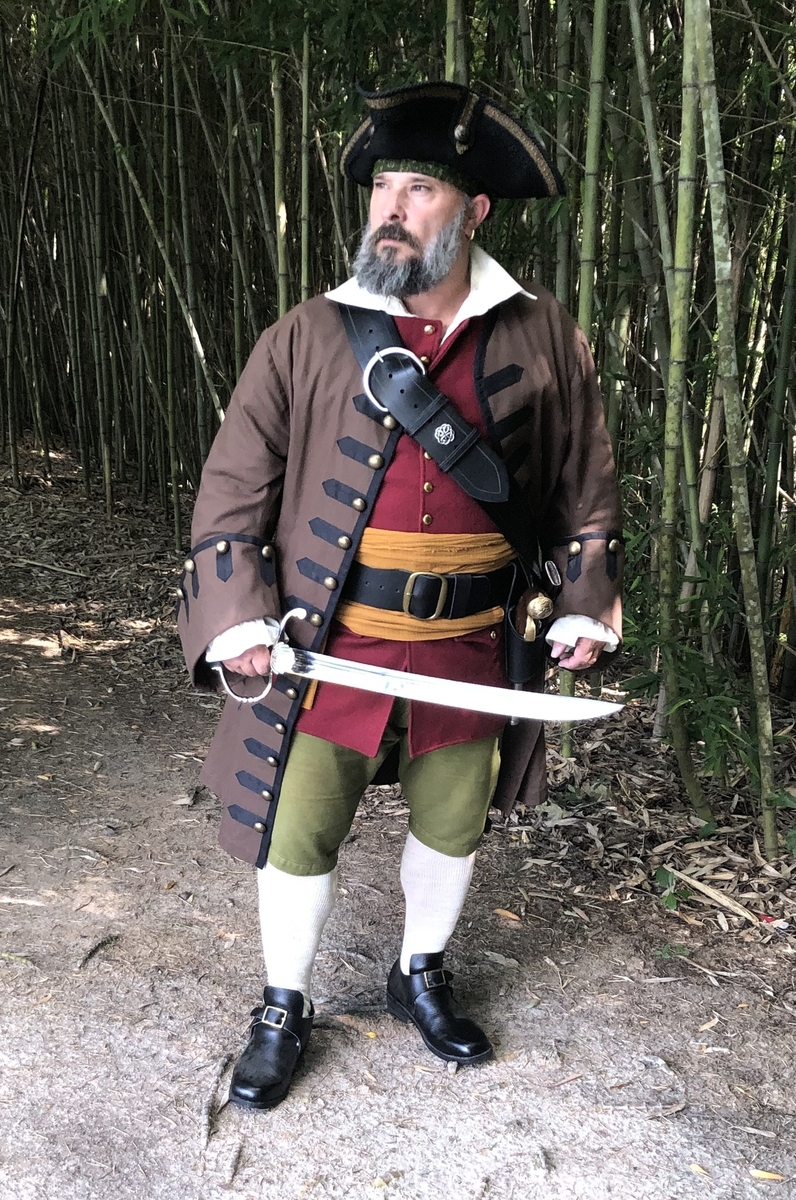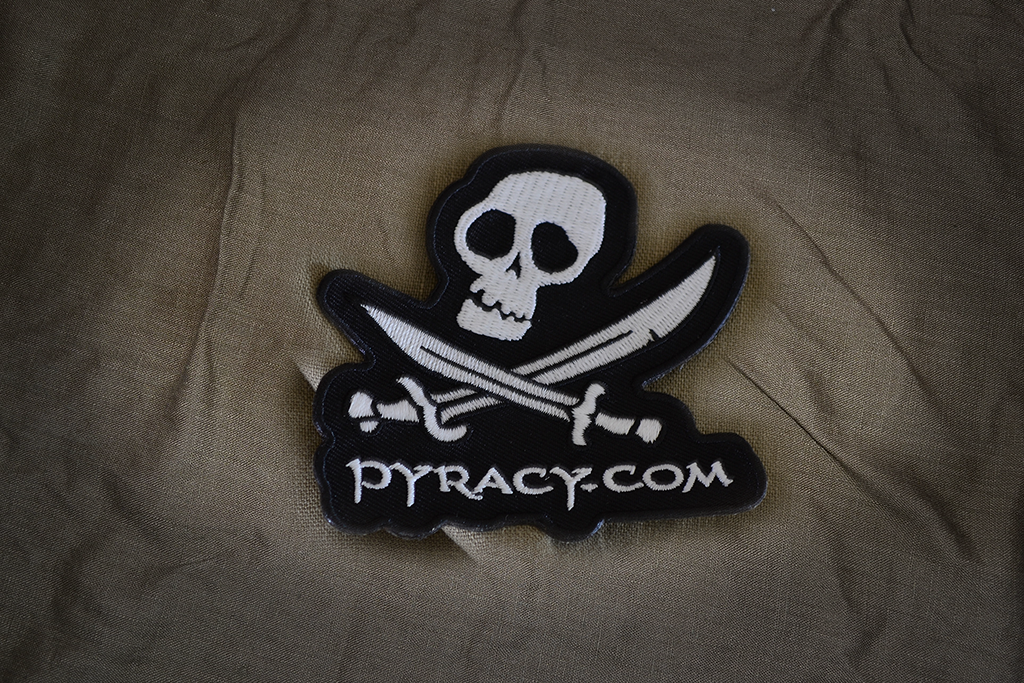Captain Twill
Academic Fight Circle, Research, Share, Discuss & Debate Maritime History.
1,566 topics in this forum
-
- 53 replies
- 5.3k views
Jus' discussin' sailor's shoes wif me pa-in-law, an ol' salt himself. And he said that since shoes were often a status symbol, a sailor/pirate wouldn't likely be wearin' 'em on a slippery deck, but only for going ashore. I mentioned how pictures show the men in shoes, and he said that was an 'artist's representation' because it would be 'disrespectful' to portray the men barefoot. He said shoes were highly valued, and would have been 'saved' for more formal occasions. He used the illustration of how kids in the south would carry their shoes to school, then put them on once there, just to prevent wearing them out. Now, running around barefoot on the deck does seem …
Last reply by Commodore Swab, -
- 56 replies
- 5.7k views
Do you guys think most pirates followed Jacobite politics during the golden age and used this to back their activities?
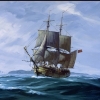 Last reply by Swashbuckler 1700,
Last reply by Swashbuckler 1700, -
- 9 replies
- 5.5k views
I did a bit of searching on this forum and got the impression right or wrong that cigarettes were not around in the GAOP but wikipedia says The South and Central American cigarette used various plant wrappers; when it was brought back to Spain, maize wrappers were introduced, and by the seventeenth century, fine paper. The resulting product was called papelate and is documented in Goya's paintings La Cometa, La Merienda en el Manzanares, and El juego de la pelota a pala (18th century) And I found this is from Brittania Concise Encyclopedia Early in the 16th century beggars in Sevilla, Spain, began picking up discarded cigar butts and wrapping them in scraps of paper …
 Last reply by Swashbuckler 1700,
Last reply by Swashbuckler 1700, -
- 14 replies
- 1.4k views
So. I am aware of U.S. Naval history that has a ceremony for crossing the Equator, the International Date Line and the Greenwich Meridian. I assume that if it is Naval tradition, that other cultures must have something similar. Is there anything written detailing the history of this horseplay and that may give us a date how far back it goes?
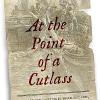 Last reply by GregF,
Last reply by GregF, -
- 0 replies
- 533 views
I wonder if anyone could clear out what prime meridians were used in the GAOP? Please correct me if I’m wrong, but I understand it like El Heirro / Ferro, the Canary Islands, was the most commonly used prime meridian. It was first used by the Spanish, as it was the most westerly known point. (The Portuguese used Madeira in a similar way.) Many countries had for a long time their own meridians, but in this period Holland also used El Heirro for some reason. I think even France used it, perhaps because the Dutch were the superior chart drawers? What did the British use? I know that Dutch charts were highly valued, but perhaps these were converted to an English system. I h…
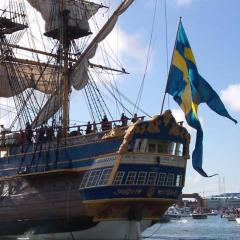 Last reply by RoyalJames,
Last reply by RoyalJames, -
- 23 replies
- 2k views
In the section about Davis, Johnston describes how the Gambia castle was robbed in 1719. Reading Bucquoy a very similar story pops up, but with some differences. Does anyone know if this is the same story in different versions or if there was two very similar different events? In Johnston’s version Davis is the one leading the operation and (if I get it right) the fort is under English possession, while in Bucquoy it is Taylor and the fort is French. /James
Last reply by sea haugh, -
- 32 replies
- 4.8k views
If you want to rob a ship (which you, being a pirate, would like to do) you have to get onto it first. In some cases, the persons who are already on that ship are violently disinclined to allow you on board. So how do you do manage to get aboard anyway? My sources say remarkably little about the nitty-gritty of getting from your own ship into somebody else's. Boarding from a boat One thing that looks pretty clear: pirates' favorite way to get on board the target ship was with the active help and cooperation of that ship's crew. The usual drill was to tell the other ship's captain to lower a boat and come aboard the pirates' ship, with appropriate threats, curses, an…
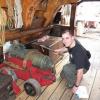 Last reply by Coastie04,
Last reply by Coastie04, -
- 17 replies
- 1.4k views
Following on from some posts in the Jacobite Politics thread, I thought a thread about busting some pirate myths might be quite interesting. I'm not talking about the superficial myths like whether pirates wore eyepatches so they could see better below decks, or reenactor myths like whether they wore bucket boots, but deeper myths about who pirates were, and what they did. Some of these have been discussed elsewhere, so this will be more of a consolidation, but some are (I think) new. Feel free to add others. Pirates' pay scales were extremely egalitarian compared with other maritime trades and 18th century society. On the face of it the division of loot specified in pi…
 Last reply by Swashbuckler 1700,
Last reply by Swashbuckler 1700, -
- 18 replies
- 1.7k views
As most crews elected their captains, I came to wonder if there is any example of a captain not being an educated naval officer. Could perhaps a strong leader among the crew master the role, even if he had no nautical knowledge?
 Last reply by Fox,
Last reply by Fox, -

Privateer Nation
by Guest Angus MacVox- 2 replies
- 878 views
According to this article, the U.S. can thank privateers in large part for it's limey independence: http://www.usmm.org/revolution.html
 Last reply by Captain Jim,
Last reply by Captain Jim, -
- 89 replies
- 16.5k views
Some of the items to be discussed here have been previously hashed out in other threads, so let us look at this as a consolidation of ideas for the overall look and feel of a good period encampment. Because of many upcoming festivals, and Pirates in Paradise later in the year, I have been getting a fair number of questions about period camps that I would like second opinions and advice about. 1 - Tents I assume that the common variety wedge is a passable tent, but I would like to know for certain if a wedge is appropriate and what tents may be better suited to the period. 2 - Cookware Cast iron? forged cookware? Copper? Cooking tripods? There are numerous questio…
 Last reply by Captain Jim,
Last reply by Captain Jim, -
- 23 replies
- 4.3k views
In "The origin of the Jolly Roger" Master Studley wrote Anyone who's been following the recent threads on pirate flags will know that most of the commonly depicted ones are modern inventions, and I recently stated that I didn't think the forgery was any earlier than the 1930s. However, it would be nice to track down exactly when they all started to appear, so I'm enlisting the pub's help. Can you post details of the oldest book in your possession which has pictures or descriptions of the following flags attributed to the following pirates. Henry Avery Blackbeard Stede Bonnet Christopher Condent (usually shown as a long pennant)* Christopher Moody* John…
 Last reply by Swashbuckler 1700,
Last reply by Swashbuckler 1700, -
- 7 replies
- 2.6k views
I have been wondering about one old folk-song. I heard it ifrom a interesting "source" (well it was Assassin's Greed 4 Black Flag but the song is real) and I found out using web sources that it is a real old Irish song. I have no real reason to know but I am curious. Here is said "This was a popular street song in the first half of the 18th century. The last verse may have been added later. There are several versions, including bawdy ones. For one alternate, but similar version, see Billy Taylor." One version of the lyrics (Youtube has some version too): William Taylor was a brisk young sailor, He who courted a lady fair; Bells were ringing, sailors singing, As to…
 Last reply by Fox,
Last reply by Fox, -
- 53 replies
- 9.3k views
So what descriptions there is sailors, pirates or common men's bad language? There is some pre hanging swearing but what about other... Also would officers or other punish for it? I know that (I live Finland BtW) in 17th century Finland (was then part of Sweden) cursing was punished by small penalty (probaply since government needed to get money) but about other countries or aboard ship? I believe that no one would bother..... Oh and those execution curses would be fine too...
 Last reply by RoyalJames,
Last reply by RoyalJames, -
- 12 replies
- 2.2k views
There are really many records of pirates and pirate ships recognized by navy or merchant captains. This happened for example to Vane who was rescued after shipwreck in 1719 in Honduras and then the merchant captain who rescued him recognized him and turned him over to authorities in Jamaica. Or another example George Lowther was careening his vessel in 1723 on an island near Venezuela when Walter Moore, a merchant captain of the South sea company, recognized them as pirates and attacked. Was the world really so small back than that pirates could be recognize so easily. We know that pirates and their vessels didn't differ much from other sailors or ships so how could …
 Last reply by JS1990,
Last reply by JS1990, -
- 2 replies
- 1.6k views
Surprisingly I didn't found proper thread for this : John/ James Martel was not a particularly notable pirate (though at least accordingly to Wiki he commanded 22 gun ship which is quite large actually) At first I found an interesting section about this pirate in The history of the pyrates: containing the lives of Captain Mission. Captain Bowen. Captain Kidd ... and their several crews (1728) link http://digital.lib.ecu.edu/17002 I appears that a person who had more knowledge about Martel or actually his pirate gang under Captain Kennedy sent a Letter to Johnson since the original edition of the book contained errors. The letter was published in this 1728 Volume. Pa…
 Last reply by Fox,
Last reply by Fox, -
- 3 replies
- 1.4k views
Is anyone familiar with a pirate named 'John Derdrake' ? I have only found reference to him three times. twice on a pirate website, and once in a picture of old pirate trading cards. Supposedly he was a pirate and shipwright who plundered in the baltic between Sweden, Denmark, and England and commanded a 70 gun ship called the 'Sudden Death' he settled in Stralsund but was captured when he ventured into another port and was hanged. This info came from the website I mentioned. I'm curious because my persona commands an 80 some gun ship and I'm curious because I believed this was impossible till now. Of course there is the obvious chance he was invented to feed a public ob…
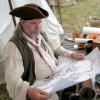 Last reply by Iron Jon,
Last reply by Iron Jon, -
- 5 replies
- 1.9k views
Ahoy mates, I understand there are some of you here with experience in deciphering handwritten 17th century documents. I recently acquired my family bible, (another interesting story there!) which had a couple of lines written in it that I cannot decipher, even after reading a tutorial on 17th century manuscripts. I am hoping someone here can help. Here is some helpful background information: This is a Geneva bible, published in England in 1615. It definitely belonged to my ancestor Thomas Bolles (1644-1727) and he signed it clearly, "Tho Bolles his Book 1696". The line of descent runs like this: Thomas (1576-1635) English baron, born in Osberton Nottinghamshire Eng…
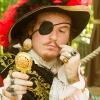 Last reply by Dread Pyrate Greyhound,
Last reply by Dread Pyrate Greyhound, -
- 9 replies
- 1k views
We had seen in stories a lot of times the lowly sailor/ soldier saving his officer's life... but in what circumstances it can be the opposite? A captain saving a sailor's life? I am trying to come with an idea but not sure which, this is why I need your help, as you are more accustomed with mishappenings aboard. This captain would be capable to help/ grab away the young sailor if he sees the impending accident, and I want the young sailor very grateful to him for having saved his life. ...So, please, help! What could have gone wrong aboard in this case? (1719, West Indies, if it helps... And it;s during the daily work, not in a battle.)
 Last reply by Coastie04,
Last reply by Coastie04, -
Two sleeps?
by Jib- 8 replies
- 927 views
Have you ever heard of this idea: http://slumberwise.com/science/your-ancestors-didnt-sleep-like-you/
Last reply by Silver, -
- 6 replies
- 7.6k views
So, how deep could the water be and the ship still be able to anchor? And what's the limiting factor? I think having a 100-fathom anchor cable doesn't let you anchor in 100 fathoms of water. I think that for the anchor to bite properly, the anchor cable needs to be at an acute angle to the sea floor, and pictures I've seen of ships at anchor show the ship several hundred yards away from being directly above their anchors. You would only go directly above your anchor when you were preparing to haul it up. But is the length of your anchor cable the limiting factor? Beyond some length, does the combined weight of the anchor and cable become too much for the crew to lif…
Last reply by Silver, -
- 11 replies
- 1.6k views
Here is an ironic side note in the history of the Wydah, Black Sam Bellamy's ship- When the Wydah wrecked on the reef, booty began washing up along the shoreline. The locals gathered it up, essentially, plundering the plunder of the plunderer!! One of my ancestors (cousin relationship) was a man named Samuel Doggett. He was hired by the 'rightful owners' of the booty bounty, to sail from Boston and recover the plundered plunder. Samuel sailed in his sloop to the site of the wreck, and went 'round the town, trying to find out whom had plundered what. But the locals weren't saying a peep about it. Finally Samuel gave up, returned to his sloop and sailed towards Boston, …
 Last reply by GregF,
Last reply by GregF, -
- 9 replies
- 1.8k views
Just for fun I was reading a fashionable study of Jacobite pirates (made by none other than Ed Fox) http://www.academia.edu/772352/Jacobitism_and_the_Golden_Age_of_Piracy_1715-1725 And one question popped in my mind. And I think it is a damn good one This was said there "Even if Jacobitism was rife among Low’s men, it was not among all his consorts. Francis Spriggs’ crew parted with Low in one of their prizes after a disagreement over their rules or “articles.” Richard Hawkins, who was captured by Spriggs and spent some days aboard his ship, observed that “whether they were drunk or sober, I never heard them drink any other health than KingGeorge’s.” Hawkins was wit…
 Last reply by Fox,
Last reply by Fox, -
- 43 replies
- 9.2k views
Hurricane suggested this fascinating book to me called Hubbub: Filth, Noise & Stench in England by Emily Cockayne. She took her doctorate thesis on noise during the 17th and 18th centuries and expanded into a book on all the irritations of that period. If you really want to create a period-correct campsite, here are some notes from her book for your consideration. “The skin of seventeenth and eighteenth century citizens was irritated by disease and infestations and chafed by coarse fabrics and dirty linen.” (Cockayne, p. 83) “Many conditions would have caused itching, including eczema, impetigo, ‘psorophthalmy’ (eyebrow dandruff), scabies, chilblains, chapped and …
 Last reply by Coastie04,
Last reply by Coastie04, -
- 8 replies
- 7.5k views
Careening: the act of beaching one's ship, turning it over on its side, cleaning the bottom and adding/replacing hull planks. WIthout careening, teredoes and barnacles and seaweed will first slow and then destroy the ship. Now, even a small vessel will have a draught of five feet or more; the brigantine St. Lawrence II, for example, has an 8.5 foot draught. So as you sail your ship toward the beach, you will run aground in five to eight feet of water. Obviously,it will be difficult or impossible to work on the bottom while standing in the middle of crashing surf. In ordinary seas, the solution is presumably to ground the ship at high tide; when the tide goes out, you…
 Last reply by Coastie04,
Last reply by Coastie04,



